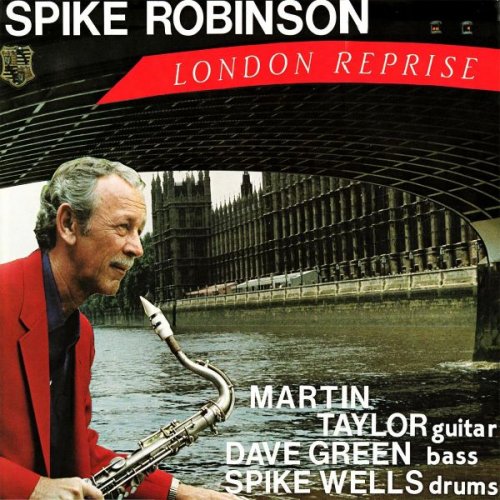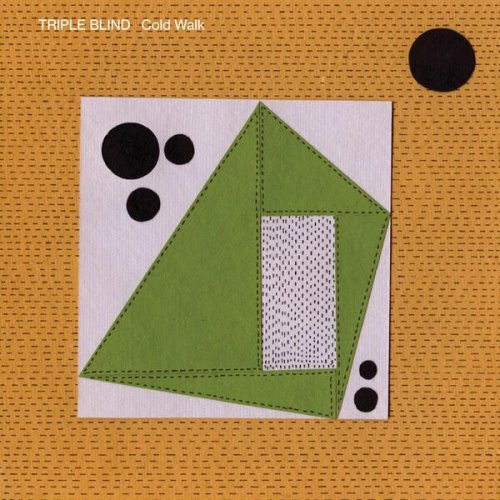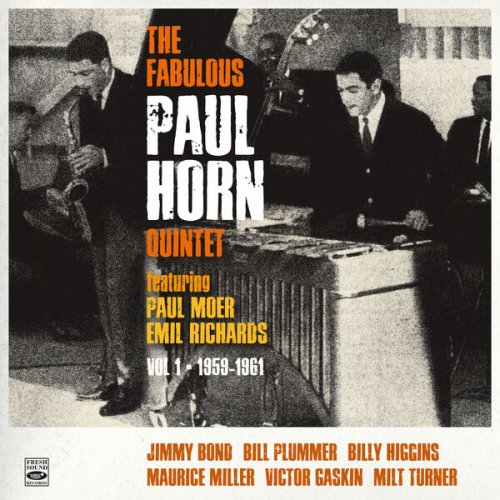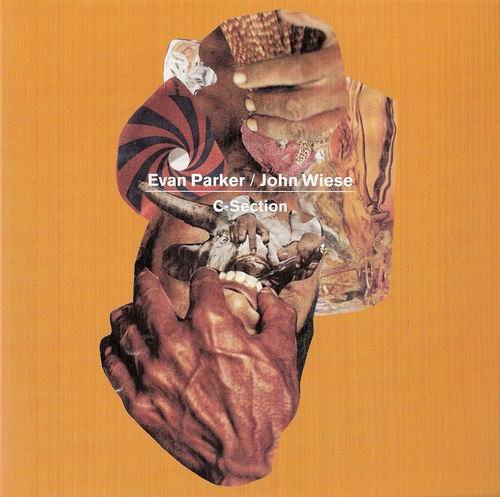Artist:
Ed Neumeister
Title:
Covers
Year Of Release:
2024
Label:
Outside In Music
Genre:
Contemporary Jazz
Quality:
FLAC 24-Bit/44.1 kHz; 16-Bit/44.1 kHz
Total Time: 01:00:15
Total Size: 309; 615 mb
WebSite:
Album Preview
Ed Neumeister Quartet + 3, liner notes by Bill Milkowski
There was a moment in time for Ed Neumeister, a working professional in the Bay Area from the age of 15, when he morphed from a trombonist who composes into a composer whose instrument was the trombone. The turning point for him came in 1987, when he joined the BMI Jazz Composers Workshop for emerging and developing jazz composers. By then he had already established a rep as a well regarded trombonist from his work with the Duke Ellington Orchestra, under the direction of Mercer Ellington, and also the Mel Lewis Jazz Orchestra, which later became the Vanguard Jazz Orchestra.
Neumeister debuted as a leader with 1996’s The Mohican and the Great Spirit. To date he has released a dozen albums under his name, ranging from large ensembles (2017’s Wake Up Call with his NeuHat Ensemble) to small groups (2016’s Suite Ellington, an album showcasing his arrangements for an all-star sextet of works by Duke Ellington and Billy Strayhorn) to duo and trio projects (2021’s Alone Together with Austrian guitarist Karl Ratzer and 2020’s Three for the Road with his late colleagues Jay Clayton and Fritz Pauer) to solo trombone (2019’s daring One and Only). And while he has showcased a considerable number of original compositions along the way, he has also, on occasion, flexed his arranger’s muscles in tackling tunes from the Great American Songbook.
On Covers, Neumeister has his way with familiar tunes that resonated from his youth — five by the Beatles, two by Led Zeppelin, one made famous by Otis Redding and another just hatched only a few years ago by Taylor Swift.
Joined by his regular quartet of pianist Gary Versace, bassist Drew Gress and drummer Tom Rainey (who all appeared on 2021’s What Have I Done? and 2023’s Explorations), Neumeister put his stamp on these beloved tunes from the late ‘60s and early ‘70s, and he encourages the others, particularly Versace, to bring their own personal expression to the proceedings. “Gary and I talk about what he should play on these tunes, but I trust him implicitly,” said the leader. “He always plays exactly what’s needed without overplaying. He’s been in my quartet for years now so we have a great connection. We seem to know what each other will play before playing it.”
A highly inventive, tirelessly creative player with an array of plungers and mutes he employs in developing his singular vocabulary straddling the inside-outside divide, Neumeister is the singer of these songs on Covers.
On the opener, a swaggering second line version of “Rocky Raccoon” from the Beatles’ 1968 White Album, you can almost hear him enunciating the familiar words through his horn. “Try a Little Tenderness,” a beautiful ballad that was introduced by Bing Crosby in 1933 and reinvented by Otis Redding in his slow, simmering, ultra-soulful rendition from 1966, begins with Neumeister blowing warm and lovely open horn phrases over the melancholy melody in a straightforward manner that might recall great ballad players like Kai Winding, Bill Watrous or Curtis Fuller. With Cameron Brown on bass, they head into a jaunty swing section that Neumeister adeptly solos over, summoning up his bop chops. Versace enters with some sweet pointillism before gradually pushing the harmonic envelope in his provocative solo. The band returns to the swinging pulse before taking it out with some free blowing at the tag.
For a version of Led Zeppelin’s heavy duty “Black Dog,” the opening track from the band’s untitled fourth album from 1971, Neumeister recruits some extra muscle in the presence of soprano saxophonist Billy Drewes, alto saxophonist Caroline Davis and tenor saxophonist Ingrid Laubrock. With Ed’s plunger work replicating the vocal stylings of Robert Plant on the familiar head, the horns engage in simultaneous blowing that escalates to some raucous interactions near the end. “That arrangement is just a unison lead sheet with no chord changes, so the players were encouraged to chime in, make musical comments whenever they felt like it,” he explained. “I love the fact that these great players can sound fantastic, whether there is very specific notation or just open improv. It’s because they listen. What a concept!”
The horn section returns for a clever 7/8 reading of Taylor Swift’s delicate “The Last Great American Dynasty” that features some ad libbing by the saxes — Drewes on soprano, Davis on alto, Laubrock on tenor. The quartet is next featured on an impressionistic take on the Beatles’ “Dear Prudence,” with Neumeister’s expressive Tricky Sam Nanton styled plunger mute work voicing the familiar melody while Rainey’s mallets-on-toms undercurrent sets a dramatic tone alongside Versace’s crystalline, contrapuntal accompaniment on piano.
Bassist Cameron Brown returns to establish a swinging pace alongside Rainey on a brisk 11/8 reading of the Beatles’ classic “With a Little Help From My Friends.” The stop-time breaks on the bridge set Neumeister up nicely for some trombone exclamations (Do you need anybody?/I just need someone to love). A robust opening on “Blackbird,” underscored by Rainey’s rubato brushwork and Gress’s bass, leads to a rock-ish funk section that Neumeister solos over with aplomb. Near the end of this re-imagining of yet another tune from the Beatles’ White Album, trombone and piano engage in some spirited exchanges.
A swinging rendition of “The Fool on the Hill” (from 1967’s Magical Mystery Tour) finds Neumeister dipping into his J.J. Johnson bag on a bop-fueled open horn solo on top of Rainey’s open-ended, Elvin-esque pulse. “Of course, JJ was an early and huge influence on me,” said Neumeister. “So it makes sense that his influence would creep in, especially as this is the 100th year of his birth. I also took a nod from Bill Evans by playing the tune in two different keys — one chorus in D followed by a chorus of G.” Versace and Brown also contribute potent improvs on this jaunty mid tempo swinger.
The lone original here, Neumeister’s “Okay For Now,” is a chugging, slow funk number with Versace on organ. Based on Dave Mason’s “Feelin’ Alright,” a 1969 hit single for Joe Cocker,” it features more vocal plunger work by the trombonist along with a deeply rooted bass solo from Gress and an edgy piano solo by Versace that is teeming with dissonance and adventure. Bone and piano engage in some spirited call-and-response at the end, with Versace’s overdubbed organ providing a funky cushion.
The three additional horns return for the closing big production number, a take on Led Zeppelin’s “Stairway to Heaven.” Following a faithful reading of that famous intro, with Versace on accordion, Davis on flute and alto sax, Drewes overdubbing Bb clarinet, bass clarinet and soprano sax and Laubrock on tenor sax, they gradually build to a faster funk feel, culminating in some uninhibited blowing by Neumeister over the familiar arpeggiated riffing from the horns.
By putting his own personal spin on these rock and pop classics, Neumeister has succeeded in blending reverence and irreverence within each nugget from his youth. “We didn’t want to sound like a wedding cover band,” he laughed. “We just wanted to play our versions of these iconic tunes.”
Hippest wedding band ever. — Bill Milkowski
Bill Milkowski is a longtime contributor to Downbeat magazine and is also the author of biographies on Jaco Pastorius, Pat Martino and Michael Brecker. His blog, “Musings on Music by The Milkman,” can be read on Substack and at billmilkowski.com
Tracklist:
1 Rocky Raccoon
2 Try A Little Tenderness
3 Black Dog
4 The Last Great American Dynasty
5 Dear Prudence
6 With A Little Help From My Friends
7 Blackbird
8 The Fool on the Hill
9 Okay For Now
10 Stairway to Heaven
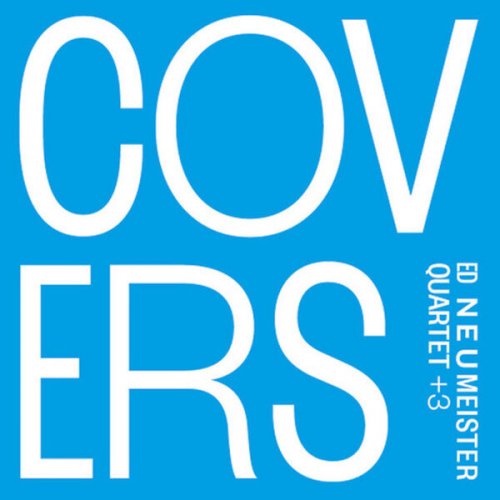

![VA - From the Archive Vol. 3... compiled by Volcov (2026) [Hi-Res] VA - From the Archive Vol. 3... compiled by Volcov (2026) [Hi-Res]](https://www.dibpic.com/uploads/posts/2026-02/1772033794_a3743742618_10.jpg)

